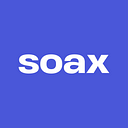Navigating the Data-Sourcing Landscape: Trends, Proxy Providers, and Future Prospects
The data-sourcing industry has experienced significant developments in recent years, with an increasing availability and demand for various data sets. One notable trend that emerged around four to five years ago is the rise of proxy providers and companies offering APIs for automatic website extraction. This trend has gained momentum, leading to numerous companies launching API structures to meet the growing needs of data extraction.
In the Ethical Data, Explained podcast by SOAX, host Henry Ng is joined by Pierluigi Vinciguerra, the co-founder and CTO at Re Analytics, who has spent ten years creating web scrapers and maintaining web scraping knowledge. Together, they discuss how to choose the right proxy provider, understand client preferences, and the dynamics of data sets.
Choosing the Right Proxy Providers
One critical aspect of assessing data sets is the sourcing of IP addresses from proxy providers. This is particularly important for businesses operating in highly regulated industries, such as hedge funds. As hedge funds are subject to strict regulations, it is essential to ensure that the information gathered through proxies is obtained legally and without any ambiguity. Maintaining transparency and adhering to regulations is crucial in such cases.
Apart from legality, pricing plays a significant role. Operating at scale requires cost-effective solutions, making pricing a key consideration for businesses. Additionally, the size of the IP pool offered by the provider is also essential. Some large websites employ IP blocking, which can pose a challenge to data gathering. To overcome this, having a vast pool of IPs allows for comprehensive data collection without disruptions. It is evident that businesses must consider multiple factors when selecting a proxy provider. Apart from legal compliance, factors such as pricing and IP pool size are crucial in ensuring the smooth and uninterrupted gathering of data from various sources.
Key Factors for a Successful Web Scraping Project
Assessing the nature and demand of data sets requires a comprehensive approach. The significance of this task cannot be underestimated, especially when considering smaller projects. In such cases, the foremost concern lies in the quality of the data output. Whether the project is being presented internally within one’s own company or to an external entity, establishing a foundation of trust between the provider and the user becomes paramount. Any inaccuracies or discrepancies in the data can lead to the erosion of this trust. Consequently, it becomes essential to invest substantial effort in ensuring the delivery of accurate and reliable data.
To achieve this objective, implementing a robust process for data quality becomes imperative. Several techniques can be employed, including human count, regression analysis, trend analysis, forecasting, and other applicable methods. These techniques serve as vital tools in maintaining the integrity and precision of the data. While these practices hold true for both small and large-scale projects, the latter necessitates additional considerations.
In large-scale endeavors, the significance of data quality remains high, but achieving it requires a broader perspective. Attention must be given to the underlying architecture of the scraping process. When building a scalable system, standardizing the processes and logs becomes crucial. The overall architecture plays a pivotal role in the effectiveness and efficiency of the data collection and analysis. Therefore, a meticulous approach is required in designing the architecture, accounting for the specific demands of large-scale projects.
Emerging Trends and Transformations in Data Extraction
Amidst the proliferation of APIs and extractors offered by proxy providers, attention has shifted towards the ethical sourcing of IP addresses. Many providers now emphasize the importance of responsible and legitimate web scraping practices. This shift is pivotal in changing the perception of web scraping from a shady industry to a legitimate and valuable means of data acquisition.
With data scraping and proxies becoming more accessible to businesses of all sizes, the discussion turns to the future of data extraction in the next decade. Pierluigi acknowledges the growing interest in web data from companies but notes the increasing cost associated with web scraping projects. Currently, only large companies can afford extensive web scraping endeavors, while smaller companies may struggle to achieve satisfactory results with in-house scraping due to a lack of expertise.
“At the moment only big companies can afford a great web scraping project. But if you are a small company trying to make the web scraping project in-house. The results will be mixed because they don’t have the skill to do it. That’s why we started Databoutique because we wanted to sell prescriptive data at a low price for everyone”
Pierluigi Vinciguerra
In response to this mismatch in demand and affordability, Databoutique enters the picture. Databoutique aims to bridge the gap by offering prescriptive data at affordable prices, catering to companies that seek reliable and cost-effective data solutions.
The future direction of data extraction could go either way. Some companies may choose to develop their in-house solutions, relying on advanced skills and expertise, while others may opt for platforms like Databoutique to meet their data needs. However, the existence of a slight gap between the current capabilities of businesses and their desired future state suggests room for further progress and development in the industry.
To find out more, tune in to the full of this week’s episode! You can find links to Apple podcasts, Google podcasts, Spotify, and YouTube on the official podcast webpage — Ethical Data, Explained!
